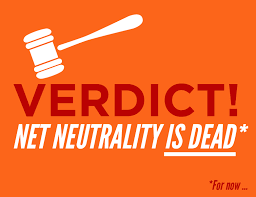Regarding the New Copyright Rules by AGCOM ( Italian telecommunications Body)and Ordonnance n 10020/2014 of Administrative Court of Lazio, Referring to Constitutional Court,
Since there are doubts about what the court said i paste here the decision, or the Order of the Court.
Everyone can get an idea
ITALIAN REPUBLIC
The Regional Administrative Court of Lazio
(First Section)
gives the following
ORDER
on the use of general register number 1985, 2014, provided by:
Altroconsumo, Assoprovider – Association of Independent Provider-Confcommercio, Motion Defense of the Citizen, Assintel – Confcommercio, represented and defended by the lawyer. Fulvio Sarzana Of S. Ippolito, with an address at Di Fulvio Sarzana S.Ippolito in Rome, Via Velletri, 10;
versus
Authorities’ To The Guarantees in Communications, represented by law by the State, based in Rome, via the Portuguese, 12;
::::::::::::::::::::::::::::::::::::::::::::::::::::::::::::::::::::::::::::::::::::::::::::::::::::::::::::::::::::::::::::::::::::::::::::::::::::::::::::::::::::::::::::::::::::::::::::::::::::::::::
This he part of a judgment that sets out the decision, or ruling – as opposed to the other parts of the decision such as the facts, arguments, grounds and costs.
“23 – Observe the Panel of Judge that the above considerations appear to also be confirmed in the jurisprudence of the Court of Justice, which in the judgment C 70/10 (Section III, SABAM against SCARLET) expected to be (only) “national courts” in order to instruct intermediaries to take measures “aimed at putting an end to violations of intellectual property rights” (in this sense, judgment of 12 July 2011 in Case C 324/09, L’Oréal and others). Therefore, “the authorities and the national courts must in particular ensure a fair balance between the protection of intellectual property rights, enjoyed by the owners of copyright, and that of free enterprise.”
For this reason, the injunction to create a filter generalized estimate “is likely to prejudice the freedom of information since that system might not be able to adequately distinguish between a lawful content and illegal content.” In fact, “it is undisputed that the question of the lawfulness of a transmission depends on the application of statutory exceptions to copyright which vary from one Member State to another. In addition, in some Member States certain works may fall within the public domain, or may have been put on line for free by their authors. ”
Therefore, even the national court could adopt the injunction that forced the FAI to set up the system of filtering controversial, because it does not comply with “the obligation to ensure a fair balance between, on the one hand, intellectual property rights and, on the ‘another, freedom of enterprise, the right to protection of personal data and the freedom to receive and impart information “.
By the judgment C – 461/10 (Section III, -BONNIER AUDIO AND OTHERS against PERFECT COMMUNICATION AB SWEDEN), the Court of Justice adds that in the transposition, in particular, the Directives 2002/58 and 2004/48, “the United States must take care to rely on an interpretation of those directives which allows a fair balance between the various fundamental rights protected by European Union law “and that” it does not conflict with the above mentioned fundamental rights or with the other general principles of EU law, such as, for example, the principle of proportionality. ”
Moreover, according to the recent judgment of the Court of Justice (Section IV) of 27 March 2014 (C – 314/12 – UPC Telekabel Vien Gmbh against Constantin Film Verleih Gmbh) “fundamental rights recognized by Union law must be interpreted as meaning that does not preclude that it is prohibited (provided) with an injunction issued by a judge, a provider of Internet access to allow its subscribers access to a website that brings in the network protected material without the consent of the holders rights. “It should be, however, that “such an injunction does not specify what measures the access provider must take” and that “it can avoid penalties for violation thimble injunction proving that he took all reasonable steps” and also that “the measures taken do not deprive unnecessarily Internet users the ability to access the information available in a lawful manner. “It should, finally, that “these measures have the effect of preventing, or at least to make it difficult to carry out consultations unauthorized” condition (only the latter) that it is (either) “to the authorities and national courts to determine.”
In the decisions cited the “double track” administrative and judicial review, as provided for by the Community directives mentioned by AGCOM, it seems tempered by the need for restrictions on access to the Internet to protect copyright are weighted with the other rights ensured in the Union law, like the principle of proportionality, which, however, are subject to prior examination by the national court, provided that the transposition of the said Directives in the Italian can not in every case regardless of the protections afforded by the our Constitution potentially conflicting fundamental rights.
24 – In conclusion, the Panel of Judge considers it necessary to refer to the Constitutional Court the following question of the constitutionality, relevant to the definition of the main proceedings, or for the purpose of eventual declaration of unconstitutionality of the contested regulation AGCom with the inscription in appeal and its subsequent cancellation in court, to obtain a preliminary ruling about the possible unconstitutionality of art. 5, paragraph 1, and Articles. 14, 15, paragraph 3, paragraph 2, and 16, paragraph 3, of Legislative Decree 9 April 2003, n. 70 *** and paragraph 3 of article. 32 bis of the Consolidated Law of audiovisual media services and radio programs approved by Legislative Decree n. 117 of 2005 as introduced by art. 6 of Legislative Decree n. 44 of 2010 on the basis of which was adopted the contested “Resolution no. 680/13 / CONS of December 12, 2013 “on the” Regulation on the protection of copyright on electronic communications networks and implementation procedures “and ‘” Attachment A “to the said Resolution, for the violation of the principles of reserve legal and judicial protection in relation to the exercise of freedom of expression and to economic initiative, set out in Articles 2, 21, paragraph I, 24 and 41 of the Constitution, as well as for the violation of the criteria of reasonableness and proportionality in ‘exercise of legislative discretion and for the violation of the principle of the court, in relation to the lack of provision for guarantees and legal safeguards for the exercise of freedom of expression on the net at least equivalent to those laid down for the press, with the consequent violation articles 21, paragraphs 2 and following, 24 and 25, paragraph 1, of the Constitution.
P.Q.M.
The Regional Administrative Court of Lazio (First Section), speaking on the appeal , as proposed in the epigraph, and not manifestly unfounded claims relevant to the question of the constitutionality of Article. 5, paragraph 1, and Articles. 14, 15, paragraph 3, paragraph 2, and 16, paragraph 3, of Legislative Decree 9 April 2003, n. 70 and paragraph 3 of article. 32 bis of the Law of audiovisual media services and radio programs approved by Legislative Decree n. 117 of 2005 as introduced by art. 6 of Legislative Decree n. 44 of 2010.
The Panel also declare relevant and not manifestly unfounded the question of the constitutionality of those provisions in relation to Articles 21, paragraphs 2 and following, 24 and 25, paragraph 1, of the Constitution.
Does the suspension of the proceedings and order the immediate transfer of the case to the Constitutional Court.
Order that, by the Secretariat of the Chamber, this order is sent to the parties constituted and the Chairman of the Council of Ministers, as well as communicated to the Presidents of the Chamber of Deputies and the Senate.
Decided in Rome in the council chamber of the day June 25, 2014 with the intervention of the judiciary:
Raphael Sestini, President FF, extenders
Anna Bottiglieri, Councillor
Roberta Cicchese, Councillor
NOTE ** Directive 2000/31/EC concerning certain legal issues relating to
information society services with particular regard to electronic
commerce in the EU internal market, has been implemented in Italy
by Legislative decree n. 70/2003, which has properly introduced the
relevant European provisions in the Italian system;
Articles 14, 15 and 16 of the Italian rules are Articles 12, 13 and 14 of the E-commerce Directive
These are The Paragraph of the Italian Constitution mentioned above.
Art. 21
Anyone has the right to freely express their thoughts in speech, writing, or any
other form of communication.
The press may not be subjected to any authorisation or censorship.
Seizure may be permitted only by judicial order stating the reason and only
for offences expressly determined by the law on the press or in case of
violation of the obligation to identify the persons responsible for such
offences.
In such cases, when there is absolute urgency and timely intervention of the
Judiciary is not possible, a periodical may be confiscated by the criminal
police, which shall immediately and in no case later than 24 hours refer the
matter to the Judiciary for validation. In default of such validation in the
following 24 hours, the measure shall be revoked and considered null and
void.
The law may introduce general provisions for the disclosure of financial
sources of periodical publications.
Publications, performances, and other exhibits offensive to public morality
shall be prohibited. Measures of preventive and repressive measure against
such violations shall be established by law.
Art. 24
Anyone may bring cases before a court of law in order to protect their rights
under civil and administrative law.
Defense is an inviolable right at every stage and instance of legal proceedings.
The poor are entitled by law to proper means for action or defense in all
courts.
The law shall define the conditions and forms of reparation in case of judicial
errors.
Art. 25
No case may be removed from the court seized with it as established by law.
Fulvio Sarzana
www.fulviosarzana.it
Studio Legale Roma Sarzana & Associati

































 The Department of Justice (DOJ) and Immigration and Customs Enforcement (ICE) have resumed “Operation In Our Sites”, the domain name seizing initiative designed to crack down on online piracy and counterfeiting
The Department of Justice (DOJ) and Immigration and Customs Enforcement (ICE) have resumed “Operation In Our Sites”, the domain name seizing initiative designed to crack down on online piracy and counterfeiting







![ban-ip-htaccess-1[1]](http://www.fulviosarzana.it/wp-content/uploads/2011/02/ban-ip-htaccess-11.png)
![net_neutrality[1]](http://www.fulviosarzana.it/wp-content/uploads/2011/02/net_neutrality11-300x225.jpg)
![images[8]](http://www.fulviosarzana.it/wp-content/uploads/2011/01/images81.jpg)

